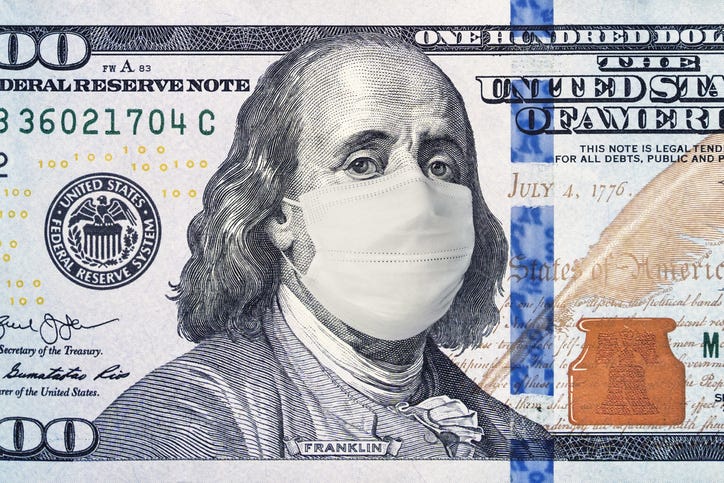
As federal COVID-19 funding continues to dry up, free COVID-19 tests for uninsured patients will no longer be available in some places.
The program that reimburses clinics and hospitals for testing and treating uninsured patients with COVID-19 has stopped accepting claims throughout the last week.
Claims are no longer being accepted "due to lack of sufficient funds," and now clinics are being forced to turn people away who don't have insurance and can't afford to pay, NPR reported.
According to the report from NPR, now that testing is no longer free for those without insurance, the next service to be cut is free vaccines for the uninsured.
That funding is reportedly expected to run out over the next week. So while the vaccines are expected to still be covered by the government, the costs of administering them will no longer be charged to the federal program.
During a White House briefing, Health and Human Services Secretary Xavier Becerra shared that federal shipments of monoclonal antibody treatments were also reduced by 35% last week.
Becerra and other officials have cited other consequences of funding drying up, including the inability to secure sufficient booster doses and variant-specific vaccines, halting critical testing, vaccine, and treatment efforts, reducing the ability to identify and assess emerging variants rapidly, and more.
"As we enter a new moment in the pandemic, Congress has not provided us with the funding we need to continue the COVID-19 response and minimize the pandemic's impact to the Nation and our economy," a White House fact sheet said. "With cases rising abroad, scientific and medical experts have been clear that in the next couple of months there could be increasing cases of COVID-19 here in the U.S as well."
Dr. Michael Osterholm shared with News Talk 830 WCCO that the BA.2 variant, which is now the dominant strain in the U.S., is causing a resurgence in Europe and could soon do the same here.
"Over the next several weeks, we're likely going to see case numbers increasing again," Osterholm said.
Health experts and officials are pleading with lawmakers to continue funding these efforts by allocating $22.5 billion more for pandemic relief.
But funding requests have stalled in Congress for the time being, and hospitals and public health experts are worried that the U.S. will not be equipped for any possible outcomes of the pandemic.
While many think that COVID-19 is no longer an issue, possibly a reason why funding has not moved through Congress as easily as it once did, Osterholm says we aren't done yet.
"It's not that we're over with it yet, and I think a lot of people want to assume the virus is done with us, but it's not," Osterholm said.
LISTEN on the Audacy App
Sign Up and Follow Audacy
Facebook | Twitter | Instagram